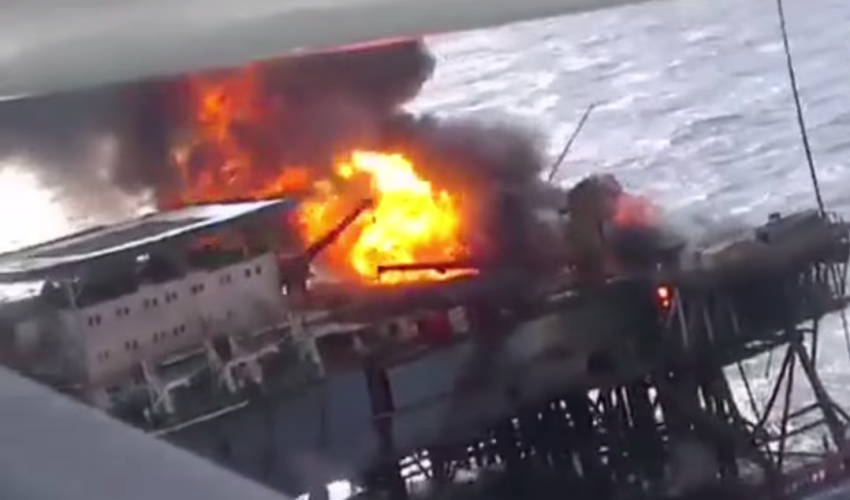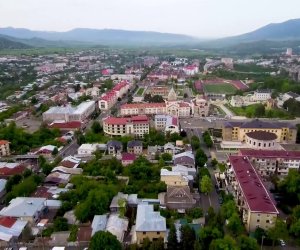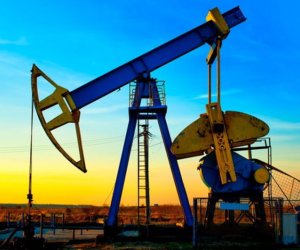Azerbaijan searches for 30 workers as Caspian oil-rig fire persists

A fire on a Caspian Sea oil rig that killed at least two people continued to burn out of control on Monday, as authorities searched for some 30 workers still missing, Azerbaijan authorities said.
The fire started Friday evening after a natural-gas pipeline was ruptured during a storm that sent waves as high as 30 feet crashing against a rig, authorities said. No information was given about the extent of the pipeline leakage.
Heavy storm conditions prevented some workers from escaping in lifeboats, according to a joint statement from the State Oil Company of the Azerbaijan Republic, or Socar, and the Azeri Ministry of Emergency Situations. One lifeboat broke loose from its fastening and dropped the workers into the Caspian Sea, they said.
Socar and the government said 32 people had been saved, two have died and more than 30 are still missing.
The rig is known as Platform Number 10 of the Guneshli oil field, which is about 60 to 70 miles east of Baku. The fire is thought to have spread to the oil and gas wells of the platform, and 28 wells were shut down to contain the incident, authorities said.
The platform affected produced around 6,000 barrels a day and served as a hub for oil from other Socar oil fields. The field, which produces mostly oil and some gas, has been in production since the 1970s and was rehabilitated in the 1990s.
Some 60% of Socar’s production passes through the platform, which means up to 100,000 barrels a day of crude could be shut in, JBC Energy analyst Johannes Gross estimated. Last year, Socar produced around 170,000 barrels a day of crude oil and 7.2 billion cubic meters of natural gas.
"For Socar it’s a disaster. It has a local effect, but internationally it’s not that significant,” he said.
While Azeri oil is used in refineries in Europe and elsewhere, a global supply glut and slowing demand growth in China means there is plenty of oil in the market to substitute for any loss of Azeri crude. Crude from the Azeri sector of the Caspian is exported to international oil markets via a pipeline to the Black Sea and a second line to Turkey’s Mediterranean oil port of Ceyhan.
BP PLC said there was no impact on operations at its offshore Azeri Caspian oil platforms, where the oil major is developing a different section of the Guneshli oil field.
BP is a major investor in the oil-rich Caspian state, where it operates the main offshore oil fields that produce the bulk of the country’s oil production. Last year, Azerbaijan’s total crude oil and condensate output was around 850,000 barrels a day.
In addition to fields offshore Azerbaijan, the Caspian Sea is home to many other oil and gas projects, such as the giant Kashagan oil field in Kazakhstan, which is run by a consortium of companies, including Royal Dutch Shell PLC and Exxon Mobil Corp., and due to come onstream in 2017, as well as producing oil fields in the Russia and Turkmenistan.
(WSJ)
www.ann.az
Similar news
Similar news
Latest news 
More news 



































 Photo
Photo 



 Video
Video 

